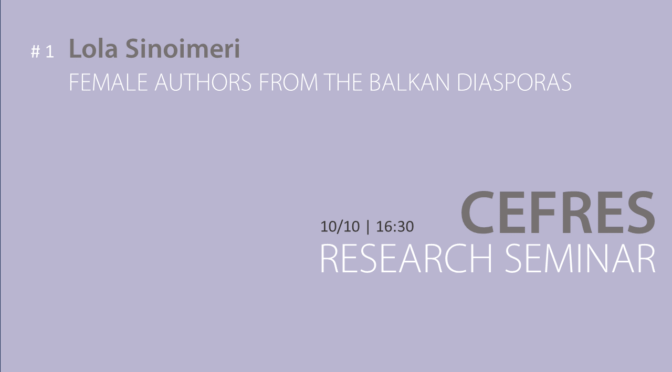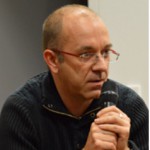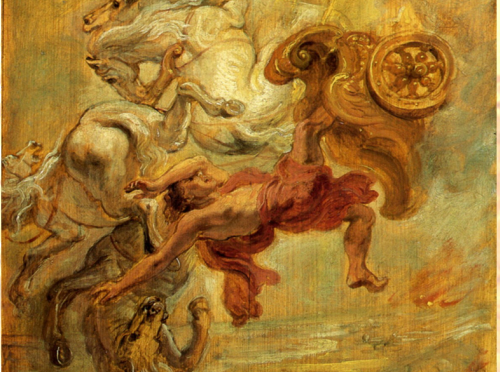This conference originates from the encounter of three projects: a Russian-French project on trials in the USSR (FMSH/RGNF), the micro-project of the Labex Création, Arts, Patrimoines ‘Images de la justice”, and the WW2CRIMESONTRIAL1943-1991 project supported by the French National Research Agency.
Find out more about the ANR project “Nazi War Crimes in Court” here
Partners: CEFRES, March Bloch Center, CERCEC, CEFR, GDR “CEM” and CERHEC
Time & Venue: 12-14 Octobre 2017, CEFRES, Prague
Language: English
Read the call for papers here
Program
Thursday 12 October
9.00 Opening Remarks
Media narratives and their reception
9.30-11.30
Panel I: Mediatization As a Turning Point: Attractive Features & Risks
Discussant: Françoise Mayer
- Ornella Rovetta: Judging War Criminals in the 1920s: A Pioneering Precedent in Making Post-War Justice Visible?
- Radu Stancu: Capital Punishment for War Crimes and Crimes against Humanity in Romania after World War II
- Enrico Heitzer: The “Norwegians”: a Nearly Forgotten Group of German and Austrian Nazi and War Criminals in Front of Soviet Courts 1946/47
Coffee Break
11.45-1.45
Panel II: Fixed Components of Media Narrative and Its Consequences
Discussant: Dimitri Astashkin
- Alexander Epifanov: Information Support to Trials over Hitler’s War Criminals and Accomplices in the USSR in 1941–1956
- Elena Kokkoken: Pskov Regional Press: The Trials over Russian Collaborators
- Marie-Bénedicte Vincent: Ernst Kaltenbrunner in the Trial of Nuremberg: Which Reception in the Press Under Military Control of Occupied West Germany?
Lunch Break
Social Mobilisation and Justice
3.00-5.00
Panel III: Sparking off social commitment
Discussant: Audrey Kichelewski
- Agnieszka Smelkowska: Revenge and justice on display: rehabilitacja in post-war Poland
- Gabriel Finder: Jews, Poles, and Justice in the Aftermath of the Holocaust
- Nadège Ragaru: Differentiated Publicity: The Sandglass of the (In-) visibilization of the Trials for Anti-Jewish Crimes in Bulgaria (1944-1945)
Friday 13 October
Social Mobilization and Justice
9.30-11.30
Panel IV: Victims and Witnesses: Driving Forces for Justice (1)
Discussant: Vanessa Voisin
- Natalia Aleksiun: Survivor Networks and the Polish Post-War Trials
- Giovanni Focardi, Andrea Martini: Shadows and lights in Trials against Fascists: Transitional Justice in Italy (1943-1953)
- Maxilimian Becker: Victims’ Unions’ Reception of Trials: The Eichmann Trial in Jerusalem 1961 and the Frankfurt Auschwitz Trial 1963-1965
Coffee Break
11.45-1.15
Panel V: Victims and Witnesses: Driving Forces for Justice (2)
Discussant: Emilia Koustova
- Máté Zombory: Arrow Cross atrocities on trial: the public trajectory of a key witness in Budapest (1945-1949)
- Birte Klarzyk, Anne Klein: Dynamics and Multiperspectivity of Justice: The “FFDJF” and the “Lischka Trial” of Kurt Lischka, Herbert Hagen and Ernst Heinrichsohn in Cologne, 1979/80
Lunch Break
1.50-2.30
Film projection: The Victims Accuse (Moscow/Minsk, 1963). Commented by Jasmin Söhner and Vanessa Voisin
2.40-4.40
Panel VI: The Limits of Social Mobilization
Discussant: Alain Blum
- Eric Le Bourhis, Irina Tcherneva: Soviet citizens write to the press and to the general prosecutor: the reception of the Kacherovski trial in Riga (1959)
- Regina Kazyulina: The Contingency of Postwar Justice in the Crimean Countryside
- Andrea Pető: Post WWII Trials and Perpetrators in Hungarian Cinema. The Missing Composure
Saturday 14 October
Transnational Justice in Postwar Europe
9.30-11.30
Panel VIII: Reception of Propaganda and Political Fallout
Discussant: Clara Royer
- James Ryan: Ideology on Trial: Ideology on Trial: The Prosecution of Leftists and Pan-Turkists at the Dawn of the Cold War in Turkey, 1944-1947
- Fabien Théofilakis: The Eichmann Trial (1961) on the Front Page”: How did the Western European Press deal with the Nazi Past?
- Jasmin Söhner: Presenting unambiguous results: the case of Erwin Schüle
Coffee Break
11.45-1.45
Panel IX: Media Impact on Judicial Procedures
Discussant: Sylvie Lindeperg
- Steven Remy: The Visual Politics of Infamy: The Malmedy Massacre Trial and its Aftermath
- Kateřina Králová: In the Shade of Eichmann: Prosecution of Max Merten in Greece and Beyond
- Vojtěch Kyncl: Judicial scandal in the “Malloth” process
1.45-2.45: Concluding Remarks





